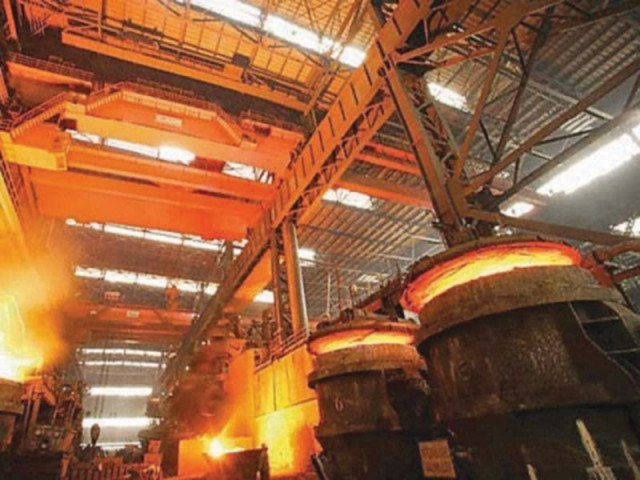Pakistan’s import and export industries worth over $1 billion each
Imports of iron, steel scrap and power generators rise past $1b

Although PSM was not producing scrap, its semi-finished and finished products (billets and slabs) were substitutes for the scrap needs of the iron-rod manufacturing industry. PHOTO: FILE
Iron and steel scrap and the power generating machinery have emerged as the two new billion-dollar import industries during the first three years of the current PML-N government.
Post-Brexit: What it means for the Pakistani economy
According to the Pakistan Bureau of Statistics (PBS), the import of iron and steel scrap rose 4% to $1.08 billion in fiscal year ended June 30, 2016 compared to $656 million in 2012-13.
In terms of volumes, the import of scrap soared 133% to 4.15 million tons in FY16 from 1.78 million tons in FY13.
The reasons behind the surge are obvious. According to officials, the government has imposed many taxes on the ship-breaking industry, which was the only source of providing scrap to the steel-melting and iron-rods manufacturing industries.
Secondly, the closure of Pakistan Steel Mills (PSM) has sparked the surge in scrap imports. Although PSM was not producing it, its manufactured semi-finished and finished products (billets and slabs) were substitutes for the scrap needs of the iron-rod manufacturing industry in Pakistan.
Thirdly, China, which is producing steel on a mass scale, has been dumping it across the world and Pakistan is no exception. Many importers continue to import finished steel products in the name of scrap to avoid paying higher duties.
Besides scrap, Pakistan also imported iron and steel (finished products) worth $2 billion in FY16, which was 10% higher than $1.82 billion in FY15, according to the PBS.
Decline in exports indicates economic emergency in Pakistan
Power generating machinery was another major import category, the worth of which rose past $1 billion during the first three years of the PML-N rule. Its imports increased 34% to $1.83 billion in FY16 compared to imports worth $959 million in FY13.
According to traders, prolonged power outages in the country have triggered the pickup in demand for the generators. Though the power crisis has not been created by the current government, it has yet to tackle the problem despite setting deadlines and making promises. Many urban cities – including the major city of Lahore – remain without electricity for about nine hours a day. The situation in rural areas is even worse.
Jewellery export was another area that was valued at over $1 billion, according to the PBS data. It earned $1.17 billion in FY13 but shipments fell to $8.49 million in FY16.
“The plunge in exports was caused by the change in rules for the import and export of gold and jewellery,” said industry officials. Authorities, however, insisted that the change in rules were a must to stem fake exports.
Other industries whose trade crossed the billion-dollar mark were rice (non-basmati), cotton yarn, cotton cloth, knitwear, bed wear and readymade garments, palm oil, electrical machinery, telecom (mobile and apparatus) and road motor vehicles. Trade in most of them was valued at over $2 billion in FY16.
The writer is a staff correspondent
Published in The Express Tribune, July 25th, 2016.
Like Business on Facebook, follow @TribuneBiz on Twitter to stay informed and join in the conversation.



















COMMENTS
Comments are moderated and generally will be posted if they are on-topic and not abusive.
For more information, please see our Comments FAQ